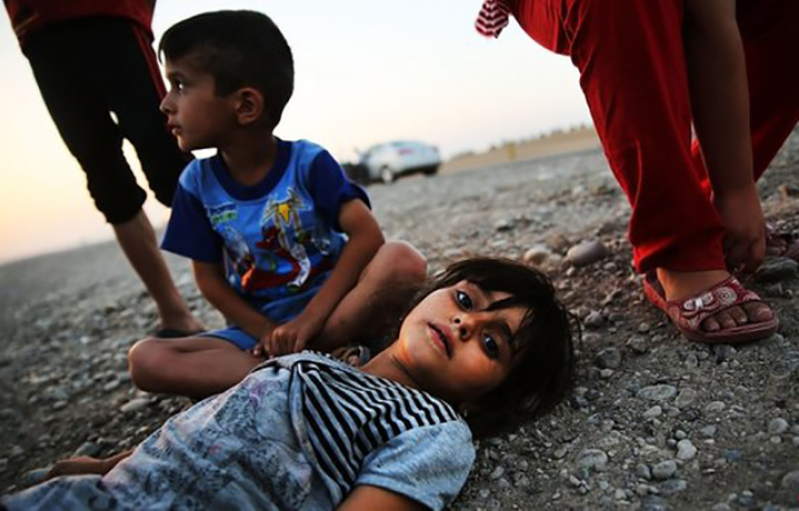
The Archbishop of Irbil went to London on Tuesday to plead with British lawmakers and clergy to implement "military action" to save Christians and other minority groups in Iraq.
According to the BBC, Archbishop Bashar Warda, who represents the ancient Catholic Chaldaean Church, told the British Parliament that Iraq's Christian population was in decline. He noted that the number of Christians in his country had fallen "dramatically" over the last decade; during the time of Saddam Hussein's rule, there were over 1.4 million Iraqi Christians.
"We don't have much time left as Christians in this region," the archbishop said. "As a Catholic, I find it hard to say, but I want military action. There is no other way now."
The BBC reported that tens of thousands of Iraqi Christians and Yazidis fled their homes back in the summer, when ISIS militants warned both groups to either renounce their faith or face death.
In his speech, Warda asked the British government to send its military to the area to take out ISIS, which has occupied the Christian villages of the Nineveh Plain according to the BBC. He begged British lawmakers "to focus on the need for military action."
"What we are seeing is worse for the world than what happened in Afghanistan, with more and more young people going to fight with Daesh," Warda said, referring to ISIS with the insulting Arabic name. "Military action is needed - powerful force - to get them out of our villages."
Although he described potential military action by the West as "an unfortunate solution," he reiterated that it was a necessary decision. According to B.C. of The Economist, the archbishop told his British hosts that Iraqi Christians are practical and do not sit around bemoaning their fate.
"Our people were hoping their liberation would start soon, but [the time] is getting longer, and many have left the country," Warda said.
Conservative Former Cabinet minister John Gummer, now called Lord Deben, told the BBC that the archbishop's speech showed the "desperate dilemma the Christian community of Iraq are now in."
"Having been subjected to war, they are now calling for it as a last resort," Deben added.
The BBC reported that Baroness Berridge, who chairs the all-party group on international religious freedom, expressed shock after hearing a Catholic archbishop say that the only option left was using military force.
"How bad, how evil this situation must be if this is the call of a Catholic archbishop," she quipped.
However, The Economist reported that an Arab Christian politely objected to the archbishop's speech. Rev. Nadim Nassar, a Syrian Anglican from Lattakia, thought that the focus in terms of fighting ISIS should focus on cutting off their funding instead of Western military intervention.
"How can IS export oil from the region under its control?" Nassar asked. "We have satellites hovering over the earth, yet everyone is blind."
Nassar added that "bullets will not solve the problem" in taking out ISIS. He urged governments in the West to tell the truth about ISIS no matter the fallout.
"By calling more [military] boots on the ground, we are avoiding this major question," Nassar said.
The Economist concluded in its opinion that based on how little appetite voters have for supporting intervention, further military action from the West against ISIS may be an unlikely scenario. However, The Economist suggested that doing something was better than sitting on the sidelines.
"Investigating and choking the financial flows to IS might be diplomatically difficult, but it's surely worth a try," B.C. wrote.






